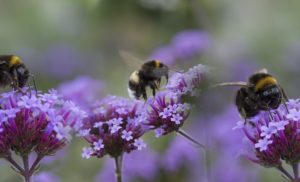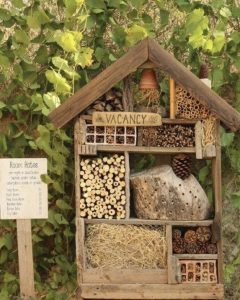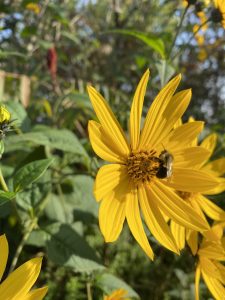In our increasingly urbanized world, creating spaces that support biodiversity and pollinators like bees is not just a trend but an urgent necessity. Bees play a vital role in our ecosystem by pollinating plants and crops, and their decline poses a significant threat to our food supply and natural world. In this extended blog, we will delve deeper into the concept of bee-friendly landscaping and provide more comprehensive information on preserving these essential insects while beautifying your outdoor space.
Why Bees Matter:
To truly appreciate the significance of bee-friendly landscaping, it’s essential to understand why bees matter. Bees are not just cute insects; they are responsible for pollinating most of our food crops, including fruits, vegetables, and nuts. Without bees, our food system would collapse, leading to severe consequences for global food security. By creating bee-friendly landscapes, you actively contribute to preserving these crucial pollinators and, by extension, the sustainability of our agriculture.

Choosing the Right Plants:
Selecting the right plants for your bee-friendly garden is crucial. We’ll delve deeper into the types of flowers and plants that attract pollinators and create a welcoming habitat for bees. From native wildflowers to specific shrubs and trees, we’ll provide a comprehensive list of bee-friendly species and detailed information on their blooming seasons and the types of bees they attract.

Designing Your Bee-Friendly Garden:
We understand that designing a bee-friendly garden can be overwhelming, so we’ll offer more tips and insights. Learn about selecting the perfect location, creating nesting sites for solitary bees, and incorporating features like bee baths to ensure your garden is an oasis for these essential insects. Additionally, we will delve into the benefits of using organic gardening practices, such as avoiding pesticides and synthetic fertilizers, to benefit bees and maintain a healthy ecosystem.

Environmental Benefits:
Expanding upon the ecological advantages of bee-friendly landscaping, we’ll explore how your efforts contribute to increased biodiversity in your community. A garden that attracts bees also supports other pollinators, beneficial insects, and wildlife. Furthermore, we’ll discuss how these gardens enhance soil health, promote the growth of native plants, and create a more resilient ecosystem that can better withstand environmental challenges.
By the end of this extended blog, you’ll not only have the knowledge and inspiration to transform your outdoor space into a haven for bees and other pollinators but also a deeper understanding of the critical role these insects play in sustaining life on our planet. Together, we can positively impact and promote biodiversity in our communities, ensuring a healthier and more sustainable future.